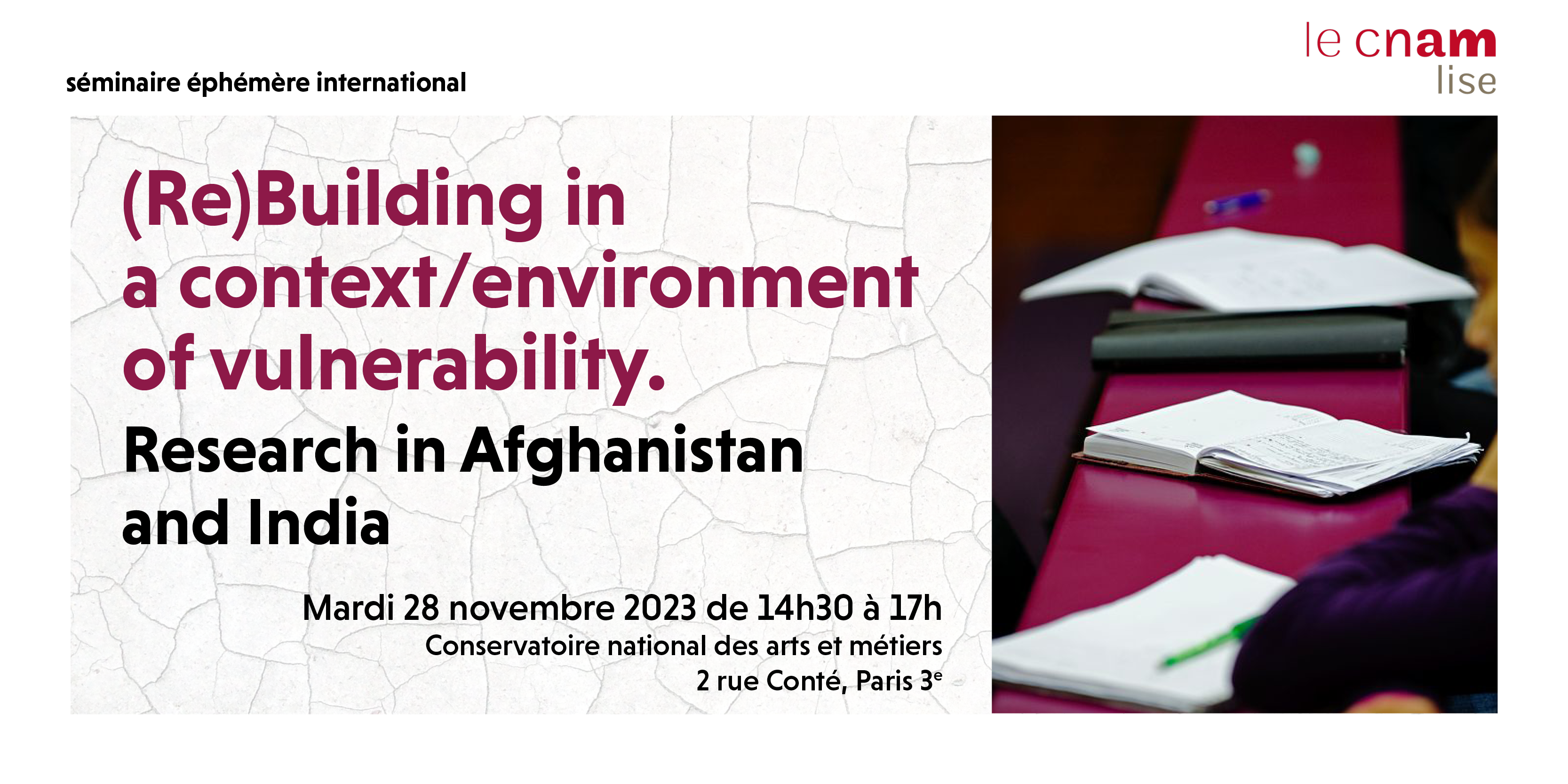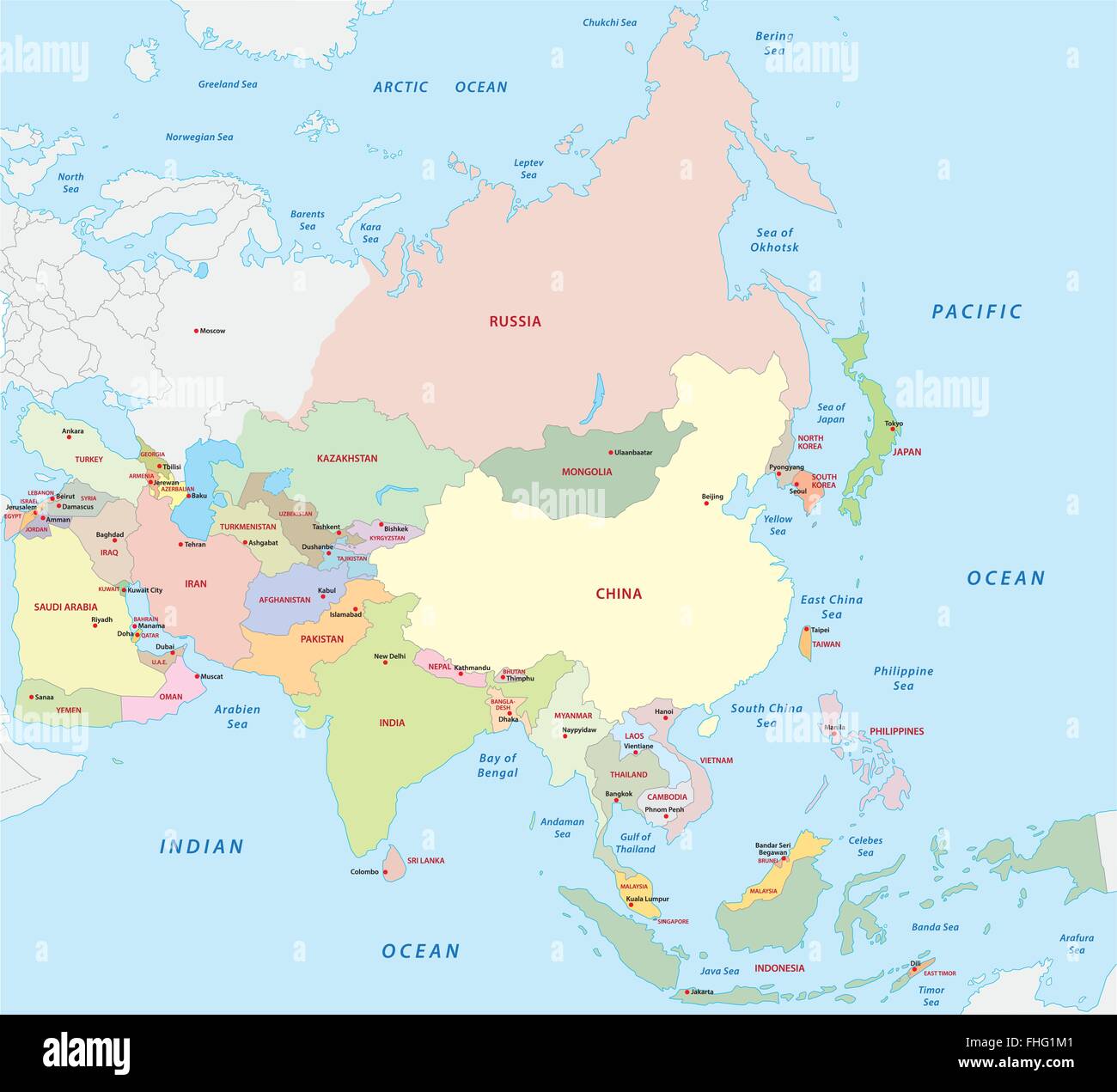(Re)Building in a context/environment of vulnerability. Research in Afghanistan and India

28 novembre 202314h30 - 17h
Salle 33 (3) 20
Au Cnam - 2, rue Conté, Paris 3e
Accès : 33, 3ème étage
 |
(Re)Building in a context/environment of vulnerability "Education for girls and women in Afghanistan under the Taliban – glimmers of hope in the darkness" & "Jugaad Psychiatry: The making of Indian Psychiatrists"
|
(Re)Building in a context/environment of vulnerability
1 - Ian Kaplan nous présentera une partie de ses recherches :
"Education for girls and women in Afghanistan under the Taliban – glimmers of hope in the darkness"
More than two years into the Taliban re-exerting control over Afghanistan, the prospects for girl’s and women’s education in the country are increasingly grim: Secondary and tertiary education for females have been largely closed. Despite vague assurances that the ban is not permanent, there is no clear indication as to if, when, or how such education provision would reopen. Nevertheless, many communities across the country (and many Taliban themselves) are strongly in favour of female secondary and tertiary education and a few, limited, opportunities for Afghan girls and women still exist. My presentation looks at some of these opportunities and practices with focus on a network of ‘underground’ schools and a public school which continues to educate girls from ages 13-20. I will discuss the factors that enable such education practices to exist despite the extremely restrictive cultural and political context as well as what this means for some of Afghanistan’s female students and teachers. I will reference my research, which I have done through my work with an NGO – Norwegian Afghanistan Committee – which supports such initiatives.
Ian Kaplan has over 28 years of experience as a teacher, facilitator, university lecturer, researcher and education resource developer. His focus is on inclusion in education for those most marginalized, and he has worked on education with communities, NGOs, multilaterals and government ministries of education in Africa, the Balkans, Europe, the Middle East, South- and Southeast Asia. Ian has also been working to support governments in Afghanistan and Armenia in anti-corruption efforts. Ian currently works with the Norwegian Afghanistan Committee (NAC) as an education and research specialist and is also a director of the Enabling Education Network (EENET) – a global inclusion in education network of practitioners and researchers.
2 - Clément Bayetti nous présentera (en anglais ou en français) une partie de ses recherches :
"Jugaad Psychiatry: The making of Indian Psychiatrists"
Over the past decade, the issue of the treatment gap and the shortage of available mental health professionals has become a significant public health concern in the Global South. In the case of India, this problem has been further complicated by a growing body of evidence that highlights a cultural divide between the practices of largely urban-based mental health professionals and the perception of suffering held by most of the Indian population. Yet, until recently very little was known about the training of Indian psychiatrists and the cultural construction of their professional identities, inclusive of how they practice, knowledge, and values are acquired, contested, resisted, sustained, and operationalized through their training and praxis. This talk will seek to address some of these questions by unpacking the results of 12-month of ethnographic work in a training institution located in a government psychiatric hospital in New Delhi, India. Through observation, interviews and focus group discussion, this presentation will show how Indian psychiatrists’ professional identities and practices are informed by more than their official curriculum and reflect the influence of other aspect of their identities, as well as that of several broader social changes and social actors, inclusive of the interest of the pharmaceutical industry. In doing so, it will reveal how the training of Indian psychiatrist ultimately results in a professional identity and praxis that embody a form of ‘Jugaad’ psychiatry characterized by the need to locally and culturally adapt a biomedical, evidence-based, approach to psychiatry to render it operationalizable in this context.
Clément Bayetti is a public health practitioner, medical anthropologist, and psychologist whose work and research interests span interdisciplinary approaches to exploring the intersection of system change approaches, community mental health program implementation and evaluation, and people- centered approaches to care. His research and teaching activities currently focus on several areas, including: the development of culturally and community-grounded definitions of mental health recovery and mental illness; medical socialization and the training of mental health professionals; and organizational change, social innovation and impact in third-sector organizations delivering community mental health services in the USA and India. Over the last decade, he has taught social workers, medical residents, and public health professionals on a range of topics associated with, public mental health, community mental health and program implementation and evaluation. In addition to his academic activities, he has worked internationally for almost two decades with third- sector organizations supporting people with psycho-social disabilities and communities to address system-wide behavioral health issues. He has collaborated with local and national organizations in the UK, India and the US to develop and implement mental health policy and services that are impact driven.
Contact : anne.gillet@lecnam.net

28 novembre 202314h30 - 17h
Salle 33 (3) 20
Au Cnam - 2, rue Conté, Paris 3e
Accès : 33, 3ème étage
![[legende-image]1295877061414[/legende-image] [legende-image]1295877061414[/legende-image]](https://culture.cnam.fr/medias/photo/picto-insert-wg11c-voir-le-site_1480004848976-png?ID_FICHE=1145835) |
voir le site du Lise |
Dans la même rubrique
- Accueil
- Agenda
- Medias-Cnam
- Vient de paraître
-
Expositions virtuelles
- L'abbé Grégoire, un héritage toujours vivant/
- Main tenant/
- La bibliothèque du Cnam, hier & aujourd'hui/
- Objets du Musée/
- Décalcomanie/
- Répare-moi si tu peux/
- Exploração/
- Le Piano oriental/
- 5 sens et 9e art/
- Surimpressions/
- Le Cnam : 70 ans d'engagement sur les territoires
- Détours verts : le futur des transports/
- Out of Home/
- The Shoe Must Go On/
- Simplement Afghanes/
- Exils syriens/
- Made in Cnam/
- Station 9e art/
- Itinéraires/
- Infinités plurielles/
- Histoires d'objets/
- Roms entre autres/
- La déportation des enfants juifs du 3e arrondissement
- Bibliothèques (SCD)
- Conservatoire numérique des Arts et Métiers (Cnum)
- Musée des Arts et Métiers

















